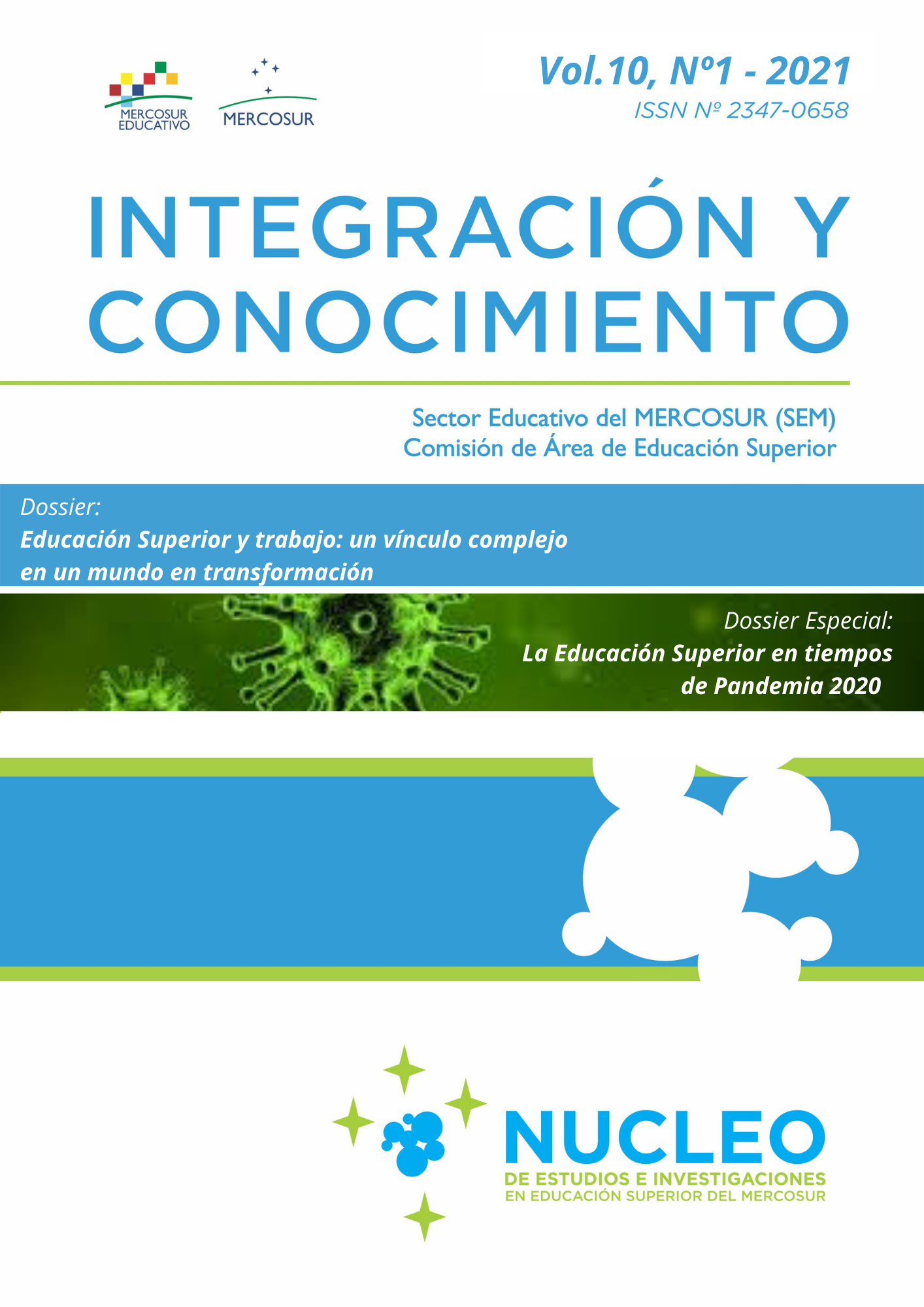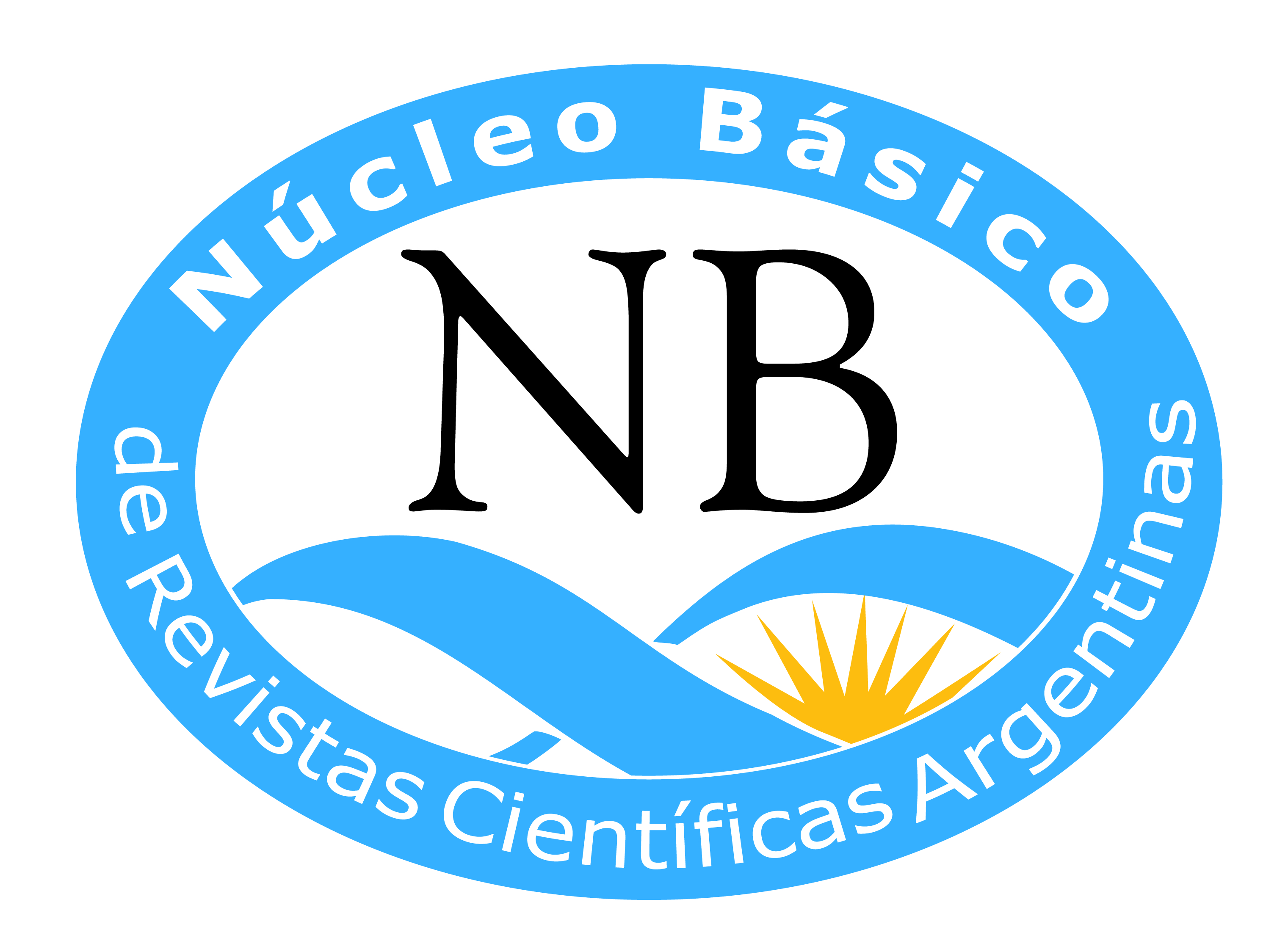CONTRIBUTIONS TO THE CONSTRUCTION OF KNOWLEDGE OF THE VOCATIONAL TRAINING
DOI:
https://doi.org/10.61203/2347-0658.v10.n1.31979Keywords:
vocational training - knowledge; constructionAbstract
This paper presents the experience of the University Diploma in Vocational Training aimed at actors who perform in different roles and decision levels in the field of linking education / work. Its main mission is to provide, through comprehensive training, the tools for analysis, criticism and transformation that drive innovative proposals to strengthen professional training. Describes the genesis of the proposal, context and historicity and the various strategies that allowed a becoming in the "construction of knowledge" about VET and the profile of the subjects who assume a process of continuous training, at the same time, made visible the themes that they problematize and demand that the field link education / work. These instances established a relationship between knowledge-knowledge and practices from the very foundations of that "doing". Implemented in the virtual modality, it anticipated an inclusion and innovation strategy in this area of VET. In a way, the Diploma reflects in its curricular dynamics and experimentation, the social processes that give a framework to professional training itself.
Downloads
References
Braslavsky, C. (2005). La historia de la educación y el desafío contemporáneo de una educación de calidad para todos. En J. Ruiz Berrio, Pedagogía y educación ante el siglo XXI. Madrid: Universidad Complutense de Madrid.
Cabero-Almenara, J. (2016). La educación a distancia como estrategia de inclusión social y educativa. Revista Mexicana de Bachillerato a Distancia, 15 (8). Recuperado de http://revistas.unam.mx/index.php/rmbd
Cambours de Donini, A. M. y Gorostiaga, J. (2016). Hacia una universidad inclusiva. Nuevos escenarios y miradas. Buenos Aires: AIQUE.
Elboj Saso, C. y Oliver Pérez, E. (2003). Las comunidades de aprendizaje: Un modelo de educación dialógica en la sociedad del conocimiento. Revista Interuniversitaria de Formación del Profesorado, 17 (3), 91-103. Recuperado de https://www.redalyc.org/articulo.oa?id=27417306
Frigerio, G. y Diker, G. (Eds.). 2005. Educar: ese acto político. Buenos Aires: Del Estante.
Amadio,M.; Opertti, R. y Tedesco, J.C. (2015). El currículo en los debates y en las reformas educativas al horizonte 2030: para una agenda curricular del siglo XXI. IBE Working Papers on Curriculum Issues Nº 15. Recuperado de: http://www.ibe.unesco.org/en/resources/ibe-working-papers
Moreno, C. (2012). La construcción del conocimiento: un nuevo enfoque de la educación actual. Revista Sophia: Colección de Filosofía de la Educación, (13), 251- 267. Recuperado de: https://www.redalyc.org/articulo.oa?id=441846102011
Muiños de Britos, S. M. (2016) Materiales curriculares y prácticas pedagógicas, ¿inciden en la retención? En A.M. Cambours de Donini y J. M. Gorostiaga, Hacia una universidad inclusiva. Nuevos escenarios y miradas. Buenos Aires: AIQUE.
Neffa, J. C. (2011). Empleo, Desempleo & Políticas de empleo. Políticas de empleo: dimensiones conceptuales y diversos componentes. Buenos Aires: CEIL-PIETTE.
Risso, M. V. (2015). Diálogo para una nueva trama educativa. En L. Piñero (Comp.), Puentes entre Educación y Trabajo. Buenos Aires: UNSAM Edita.
Risso, M. V. (2019). Las Instituciones de formación Profesional como mediadoras socio culturales. Trabajo presentado en el IX Congreso ALAST El Futuro del Trabajo, Desigualdades, precariedades y modelos de desarrollo. Bogotá
Weinberg, P. (2017). Formación Profesional en la Argentina: ruptura, continuidad, innovación. Documento de trabajo de OIT. Recuperado de http://www.relats.org/documentos/ET.Weinberg1.pdf
Downloads
Published
Issue
Section
License

This work is licensed under a Creative Commons Attribution-NonCommercial-ShareAlike 4.0 International License.
Authors who have publications with this journal accept the following terms:
a. Authors shall retain their copyright and guarantee the journal the right of first publication of their work, which shall simultaneously be subject to the Creative Commons License of Recognition which allows third parties to share the work as long as its author is indicated and its first publication is this journal.
b. Authors may adopt other non-exclusive licensing agreements for the distribution of the published version of the work (e.g., depositing it in an institutional telematic archive or publishing it in a monographic volume) provided that the initial publication in this journal is indicated.
c. Authors are allowed and encouraged to disseminate their work via the Internet (e.g. in institutional telematic archives or on their website) after publication of the article, which may lead to interesting exchanges and increased citations of the published work. (See The Effect of Open Access).



